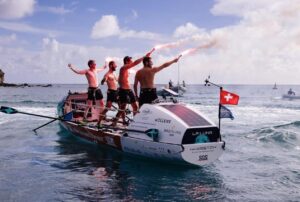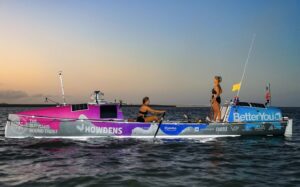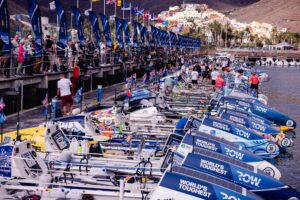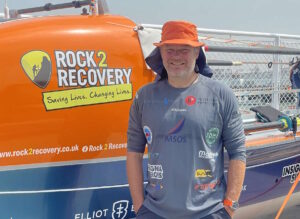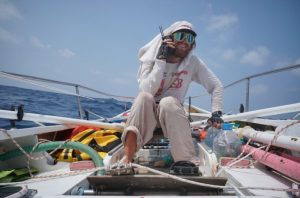Victoria Evans has shattered the female speed record for rowing across the Atlantic. The 35-year-old British lawyer rowed the 4,900km from Tenerife in the Canary Islands to Barbados in just 40 days and 19 hours. She cut a staggering nine days off the previous record, held by Kiko Matthews.
Evans set out from the first to break the record. From the moment she began on February 11, she rowed 12 to 14 hours a day. She slept at most six hours each day, in 20 to 30-minute catnaps. She did not want the boat to drift while she slept.

Photo: Sea Change Sport
The trip has not been easy. Evans faced big swells driven by following winds. Although these pushed her in the right direction, accelerating down big tailing waves was unnerving. It felt too fast and unsafe.
Then the swells started pushing her north, while she was doing everything possible to move south. After three weeks, the weather started to ease up and she was able once again to focus on her pace.
Problems overcome
Evans faced other problems as well. She suffered from a flare-up of shingles. Once, she accidentally locked herself out of her stern cabin, where her autohelm and liferaft were located. On another occasion, a wave crashed over her as she was transferring her kit, soaking everything, including electronics.
On March 10, her EPIRB went off, frightening her family. You usually activate EPIRBs manually in an emergency, but they also go off automatically when completely submerged. The waves constantly flooding over the deck set the device off.

Photo: Sea Change Sport
Evans had planned the expedition for last year but as with so many of us, the pandemic put her project on hold. Building up to this year’s attempt, Evans quit her job to train full-time.
According to the Ocean Rowing Society, only 163 crews have attempted this route. Just 30 have been soloists. She is one of only 11 women to successfully cross the Atlantic from east to west. The fastest male rower completed the distance in about 35 days.
Many would assume that Evans is a hard-core athlete. However, she admits that she avoided sport until her mid-20s. She didn’t set foot in a rowing boat until this challenge.
“Sport used to seem like this other, unobtainable world,” she told Red Bull. “I was self-conscious and unfit.”
This began to change when she moved in with a friend who liked running. A few years later, she moved to Switzerland and began hiking, cycling, and skiing.

Photo: Sea Change Sport
She attributes her newfound confidence to this lifestyle. Having suffered from eating disorders and depression in the past, she believes sport has been “transformational…it’s allowed me to redefine what I’m capable of.”
On her website, she notes that “women’s sport is at the start of a revolution,” but that there is still a long way to go.

